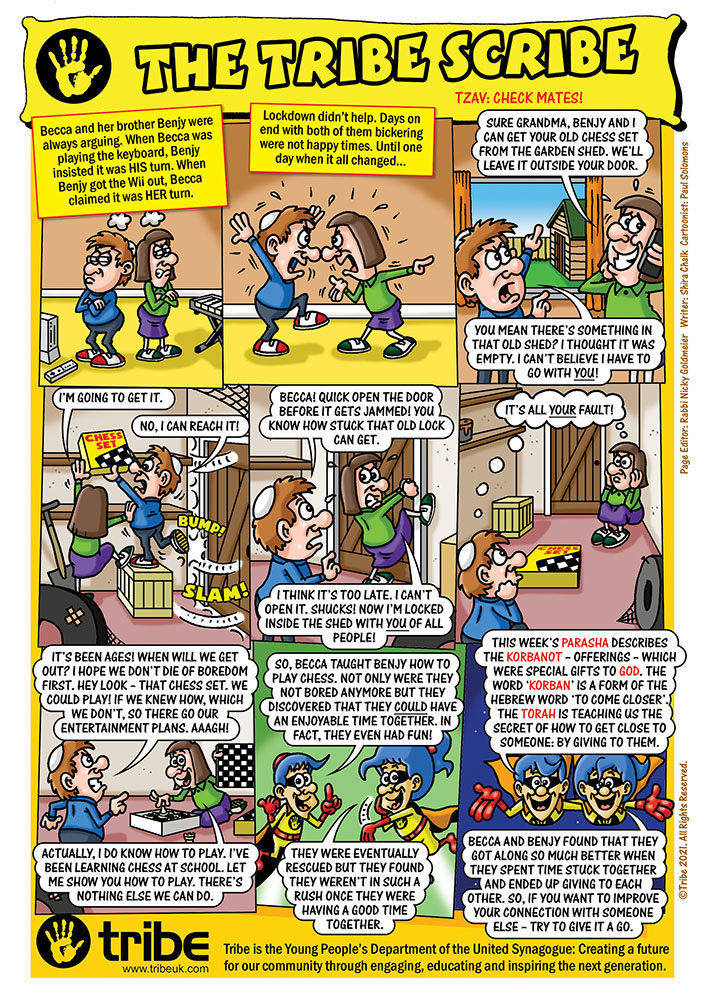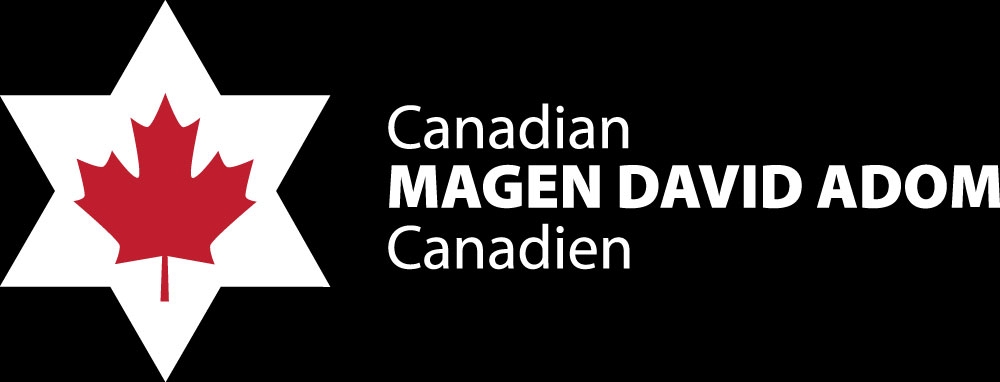Bonjour / Hello [nickname_else_first_name],
Table of contents
1) Perashat Hashavoua - Rabbi Eli Mansour
2) Halakhat Hashavoua - Chazzan David Azerad - Perashat Zachor
3) Holy Jokes!
4) FOR KIDS!

Shabbat Parah (“Sabbath [of the] red heifer” שבת פרה) takes place on the Shabbat before Shabbat HaChodesh, in preparation for Passover. Numbers 19:1-22 describes the parah adumah (“red heifer”) in the Jewish temple as part of the manner in which the kohanim and the Jewish people purified themselves so that they would be ready (“pure”) to sacrifice the korban Pesach.

This Week's Parasha Insight with Rabbi Eli Mansour
Parashat Sav- Accepting Criticism
The prophecy read as the Haftara for Parashat Sav comes from the Book of Yirmiyahu (7), and in this prophecy, Yirmiyahu criticizes the people for offering sacrifices without undergoing a process of repentance and change. Parashat Sav speaks about the sacrifices, and this prophecy reminds us that sacrifices alone do not suffice. In order to achieve G-d’s atonement and favor, the sacrifices must be accompanied by a genuine commitment to improve one’s conduct.
Yirmiyahu here bemoans the fact that Beneh Yisrael had acted "according to the will of their evil heart" (7:25), and that when G-d sent prophets to criticize the people and urge them to repent, "they did not listen to Me, they did not turn their ear; they made their necks stiff, and were worse than their fathers" (7:26). The people refused to accept the prophets’ rebuke, stubbornly persisting in their wayward conduct.
Rav Avraham Pam (1913-2001), in discussing this Haftara, elaborates on the importance of humbly accepting criticizing. Our instinct upon hearing criticism is to reject it, to insist that we are correct and that we have no need to change anything. But if we never accept criticism, we will never grow. There are many improper things that we do of which we are unaware until somebody draws our attention to the fact that we act wrongly. Thus, we cannot possibly hope to change and become better if we refuse to accept criticism, to listen with an open mind and ear when people point out to us our mistakes and wrongdoing.
Rav Pam related a humorous story about his father, Rav Meir Pam (1879-1969), who served as a Rabbi in Brownsville. Once, Rav Meir found it necessary to harshly rebuke the congregation, and delivered a sermon critical of their conduct. Afterward, one of the members approached him and said, "Wow, Rabbi, you really gave it to them!"
"I had to bite my lip not to laugh or say anything," Rav Meir later told his son. "He was exactly the person I was talking to!"
This exemplifies the natural tendency that we all have when it comes to criticism. It’s uncomfortable to admit that we act wrongly, so we prefer to deflect it, to insist that our behavior is perfect and beyond reproach, and it is everyone else who needs to hear criticism.
We did not come into this world perfect, nor will we ever achieve perfection. Our goal, however, must be to constantly grow and improve. And in order for this to happen, we must keep our minds open, humbly acknowledging that we are far from perfect, and being prepared to accept the uncomfortable criticism given to us by others. If we live this way, then we will continually grow and become better, thereby fulfilling our purpose here in this world.

Parashat Zakhor - peninei halacha
The Sages instituted the reading of Parashat Zakhor once a year in order to fulfill the Torah commandment to remember and not forget the evil deeds of Amalek. One is viewed as having forgotten about Amalek only if a year goes by without remembering it. Therefore, we discharge our obligation by mentioning the matter once a year. We read Parashat Zakhor on the Shabbat before Purim in order to juxtapose remembering Amalek to the destruction of his descendant Haman.
According to Torah law, one must express this remembrance verbally. There is no need, however, for every individual to read Parashat Zakhor from a Torah scroll; rather, everyone fulfills the mitzvah by hearing another person read the verses from the Torah.
According to some of the greatest Rishonim, the Torah commands us to read Parashat Zakhor from the Torah scroll itself. Therefore, it is proper to read it from an exceptionally beautiful Torah scroll, and the reader must try to read the passage as meticulously as possible.
Preferably, everyone should hear Parashat Zakhor read according to his family’s accepted traditions of cantillation and pronunciation. Technically, however, members of all Jewish communities can discharge their obligation by hearing it read according to any version accepted among the Jewish people, whether it is Sephardic, Ashkenazic, or Yemenite.
One who finds himself in a place where there is no minyan should read Parashat Zakhor from a Torah scroll without a minyan. If no Torah scroll is available, he should read it from a ĥumash or a siddur.
Mitzvot require kavana (focused intent); therefore, one must have in mind to fulfill the mitzvah of remembering Amalek’s deeds when reading or hearing Parashat Zakhor. It is a good practice for the gabbai or reader to announce this before commencing the reading.
Purim Sameach
Bevirkat Shabbat Shalom Umevorach
David Azerad
3) HOLY JoKeS!!
Selection of funny snippets, loosely related to this weeks parashah or current events, to brighten your day
One day, coming back from trading in the town, a village’s men find a beggar sitting at the side of the road leading into the village. ‘Moishe’ they say, ‘What are you doing out here?’ He told them ‘The rabbi appointed me as the village watchman. I sit here all day watching for the messiah.’ ‘What kind of job is that!’ they say. ‘Well,’ Moishe said, ‘the pay is not too good, but it’s steady work.’
---
The Chinese Restaurant
A rabbi is walking down the street during Passover and he sees the synagogue president up ahead on the sidewalk. The rabbi rushes ahead to discuss some business, but before he can reach him, the president enters a non-kosher Chinese restaurant.
The rabbi can’t believe it! He watches through the window of the restaurant as the president orders food from the menu and then eats it.
The rabbi can’t contain himself any longer. He barges into the restaurant and says, “Moshe, what are you doing? I just saw you eat that non-kosher food, and during Passover of all times!
Moshes says, “Rabbi, did you see me enter this restaurant?”
“Yes!”
“Did you see me order the food?”
“Yes!”
“Did you see me eat the food?”
“Yes!”
“Well, then I don’t see what the problem is, Rabbi. It was all done under rabbinical supervision.”
4) FOR KIDS
Click on the image to open the youtube video













